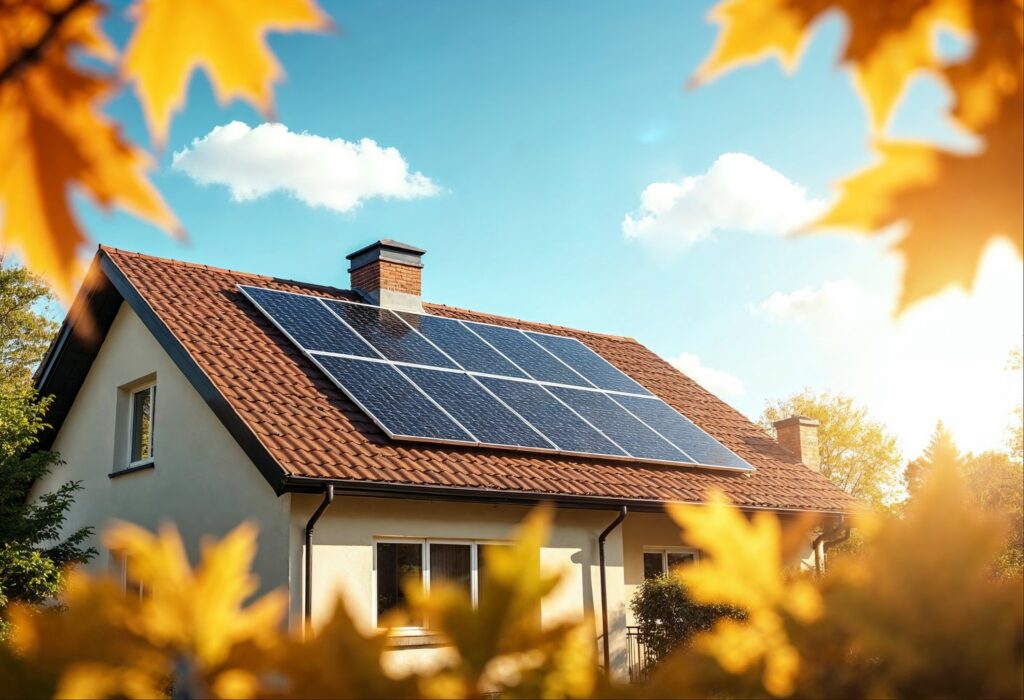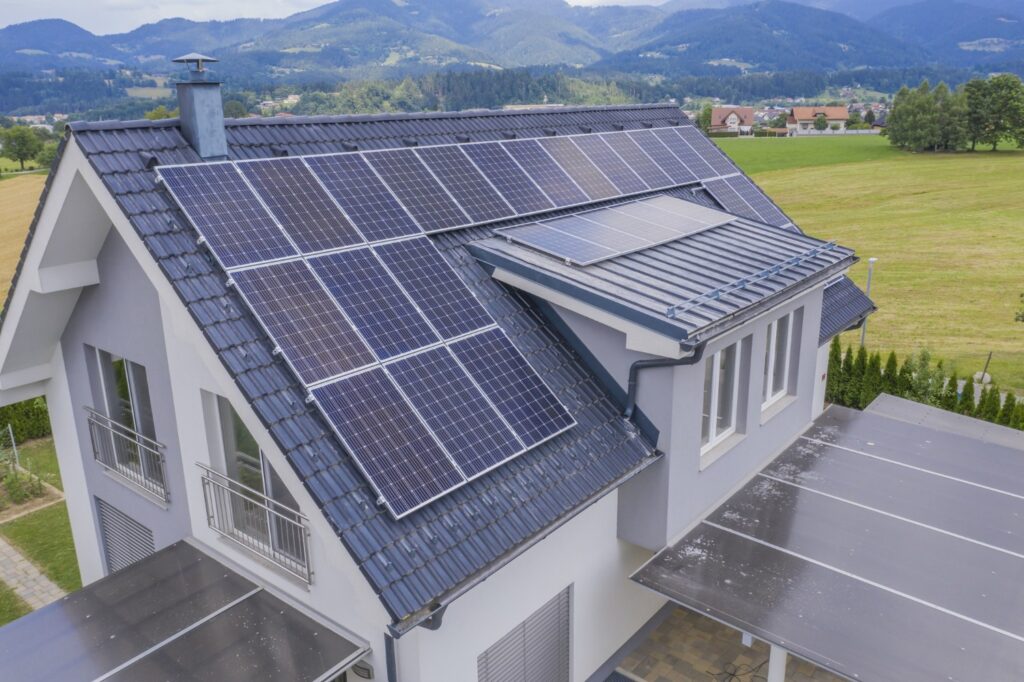Heating water uses a large amount of household energy, but what if you could do so without gas or electricity? Enter solar hot water heaters. These green solutions are powered by the sun and are an efficient, affordable alternative for all your hot water needs. This guide will cover everything you could ever need to know about solar hot water heaters–how they function, their costs, the benefits of using them and why it all makes sense to do for your home or place of business.
Thank you for reading this post, don't forget to subscribe!What is a Solar Hot Water Heater?
A solar hot water system is a system that uses solar energy to heat water for use in the home or commercially. While traditional systems use electricity or gas, a solar hot water heater takes advantage of free renewable solar energy, saving you money on utility bills and reducing your carbon footprint.
Key Benefits of Solar Hot Water Heaters:
- Saves Money: By harnassing the natural power of the sun.
- Clean Energy: Solar power and Solar panels are uses sustainable, renewable energy that can help to reduce your carbon footprint, prevent climate change.
- Energy Independence: Depend less on traditional, increasingly more expensive energy sources.
- Minimal Upkeep: Long-lasting systems that require very little to maintain.
With the benefits, it’s easy to see why solar hot water heaters are quickly gaining popularity all over the world.
How Do Solar Hot Water Heaters Work?
In general, solar hot water heaters consist of a system that captures light and transforms it into heat using the same principle as other solar power systems. Here’s what that process looks like, explained in simple terms:
- Solar Collectors Absorb Sunlight
Solar panels (a.k.a. solar collectors) are mounted on your rooftop or other sunny location, where they collect sunlight and convert it into thermal energy.
- Heated Fluid Transfers Energy
A heat transfer fluid (usually antifreeze or water) circulates in the system, collecting heat from the collectors.
- Storage Tanks Hold Heated Water
The hot fluid flows through a heat exchanger, which heats the water for use in your sinks, showers and appliances.
- Backup Systems Provide Reliability
For when the sun isn’t out, most systems have a backup heater, which is powered by electricity or gas, so there’s always hot water available.
This is a simple and ingenious process – That’s why Solar Hot Water Heaters are so efficient and friendly to the environment.
Types of Solar Hot Water Systems
Mechanical principle Solar hot water systems are divided into two classes by the operating method.
Active Systems
- Pumped Circulation
Circulation is driven by electric pumps for the fluid (water, antifreeze, etc.) moving between the solar collectors and the reservoir. Those systems are more effective, but use small electric power for pump operation.
- Pressurized Systems
They are suitable for colder climates, maintaining pressure in the line, and engineered to prevent freezing and avoid freezing water.
Passive Systems
- Thermosiphon Systems
This kind of system uses gravity and natural convection to circulate water throughout the house. Though less effective than active systems, it doesn’t use any electricity, contains less parts and liquids, making it need less maintenance.
- Integrated Collector-Storage Systems (ICS)
Under this scheme the water is heated inside the collector and is also stored in the collector itself. This is simplicity but there is room for improvement.
Which type is best for you will depend on where you live, your budget, and your household needs.
Components of a Solar Hot Water System
For some context, here’s a look at some of the key elements in a typical solar hot water setup:
- Solar Collectors
Flat plate or evacuated tube collectors receive solar energy and change it to heat.
- Heat Exchanger
Transfers heat of the fluid in the solar collectors to your water in the storage tank.
- Storage Tank
Maintains hot water available. Some tanks have integrated heat exchangers.
- Controller
Monitors equipment performance and enables auxiliary heating as necessary.
- Pumps (Active Systems Only)
No pun intended Heat transfer the fluid throughout the system.
Every element is critical in maintaining the efficiency of your solar hot water.

Factors to Consider When Choosing a Solar Hot Water System
Before you buy, here are a few things to take into account so you purchase the right system for your home:
- Climate
Solar systems fare better in sunny regions, but you’d be surprised what paying attention to the numbers of efficiency can be in cloudy areas.
- Household Size
More people in a household, necessitate to the use of more water.
- Roof Space & Orientation
Make sure there is enough space to put collectors in a place with the best sun.
- Budget
Solar hot water heaters are an excellent approach to reducing the cost of heating water used for showers and swimming pools.
- Efficiency Ratings
Look for certifications, such as Energy Star, to make sure that you’re purchasing a model that is reliable.
If you work through these points, you can be confident that you are making an informed decision.
Installation Process: DIY vs. Professional
DIY Installation
The DIY alternative may sound like a money-saving way to go, but there are things you need to know. DIY systems can be complicated, and you need some tech savvy to successfully install the accompanying app, purchase and install the equipment, and get it all connected and working. Improper installation may decrease efficiency and cause you unnecessary repairs.
Professional Installation
A bit pricier initially, but contracting with certified technicians guarantees effective installation, local ordinance adherence and an efficient system from the start. A professional installer can also help your setup and discuss system maintenance and warranty options.
For most homeowners, hiring a professional to install is the best option for peace of mind and long-term performance.
Cost and Savings of Solar Hot Water Heaters
Installation of a solar hot water system If you don’t have a solar hot water system installed then the cost for doing so would normally range anywhere from $3,000 to $7,000, depending on the type and size. But you can tip the scales in your favor by doing things like:
- Government Incentives
A number of areas also provide tax credits, rebates, or special grants for solar installations.
- Energy Savings
For most families, it means a 50–80% decrease in hot water costs.
- Long Lifespan
Good quality systems can last for more than 20 years, providing a long period of energy saving.
It is a relatively large initial investment, but when you balance that with the rewards of savings down the road, it makes a lot of sense for your pocketbook.
Maintaining Your Solar Hot Water Heater for Longevity
Read on for tips on how to maintain your hot water system to ensure its longevity.
- Annual Checkups
Check for leaks, blockages and wear and tear on components such as pipes and tanks.
- Clean Panels
Be sure your solar panels aren’t dirty, dusty, or blocked by bigg-larb or other obstructions that may prevent the sun from providing a continuous beam of power throughout day and night.
- Monitor Performance
Continuously monitor performance to catch problems fast.
Routine maintenance helps your system to work more efficiently and last longer.
Going Green with Solar: Environmental Benefits
Converting to solar hot water offers several environmental benefits:
Reductions in Carbon Footprint
Household carbon emissions can be reduced by as much as 2 tons annually by solar systems.
Lower Resource
Lower Resource Consumption
- Consumption
- You simply don’t rely on these finite, non-renewable fuel options.
- Encourage save living.
Solar is part of a bigger environmental ethos The choice of solar is part of a larger commitment to green thinking.
If you go solar, not only does it help your wallet, but it helps the planet.
Real-Life Case Studies
Case Study: 01
An Arizona family got a solar hot water system to supplant their use of electric. It took them three years to save $1,500 in energy costs, and their carbon emissions fell by roughly 6 tons.
Case Study: 02
A small hotel in California implemented a solar hot water system, and slashed their energy bills while boasting about their environmentalism to draw in guests.
This is an excellent example of how solar can be genuinely useful.
Solar: The Future Is So Bright Hot Water!
Solar hot water heaters are increasingly making sense for homes (and businesses) in these times of rising energy prices and greater care being taken with our environment. These environmentally friendly and cost-saving systems are the future of water-heating, and with VELIS EVO PLUS and LYDOS HYBRID you will soon realise the future is already here.
If you’re ready to make the transition to solar, contact a professional installer or learn more about government incentives to get started. The advantages are clear, and the time to act is immediately.
Meta informat



